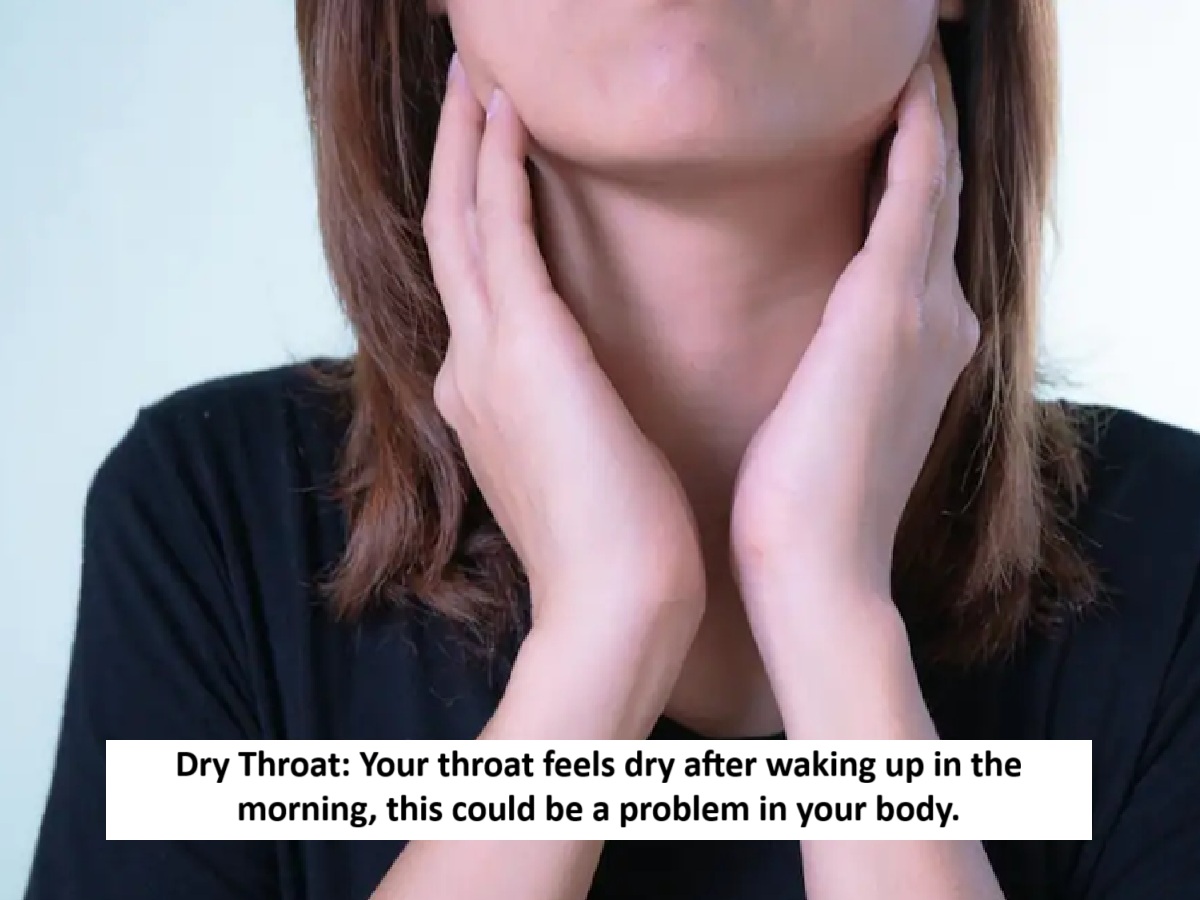
News Topical, Digital Desk : Dry Throat In Morning: Feeling a dry or sore throat upon waking isn't just an uncomfortable start. It can also be a signal from the body that something isn't right inside. This could be due to our sleeping habits, the air quality of the room, or our body's internal balance. Understanding the underlying cause can help prevent long-term sore throats and sleep problems. Let's explore the underlying causes.
Breathing through the mouth in sleep
The most common, yet overlooked, cause of a dry throat in the morning is mouth breathing. When we breathe through our mouth instead of our nose, air passes directly over the delicate lining of the throat, drying them out. A study published in the Annals suggests that problems like nasal congestion, a crooked nasal bone, or sleep apnea often contribute to mouth breathing. In the long run, this can lead to throat irritation and bad breath.
Acid reflux flares up at night
Sometimes, a dry throat isn't caused by breathing, but rather by stomach acid. If acid rises up the esophagus and reaches the throat during sleep, it can cause a burning sensation and dryness in the morning. A 2024 NIH report stated that approximately 20 percent of reflux patients have laryngopharyngeal reflux, which doesn't cause heartburn but affects the throat.
Poor water intake or dry air
Drinking less water throughout the day and sleeping in an AC or heater at night can both contribute to a dry throat. The body loses moisture through breathing during sleep, and if the air is already dry, this effect is exacerbated. A study by ResearchGate suggests that even mild dehydration reduces saliva production, further drying out the throat.
Snoring, choking, or fatigue throughout the day
If a dry throat is accompanied by snoring, shortness of breath, or fatigue even after eight hours of sleep, it could be a sign of sleep apnea. Reports indicate that sleep apnea is a condition in which the airways are partially blocked, causing a person to breathe through their mouth and a persistent dry throat.
Allergies and post-nasal drip
Seasonal allergies, dust or pet allergies can cause mucus to accumulate in the throat at night, causing dryness and irritation.
effect of some medicines
Many antihistamines, antidepressants, and blood pressure medications reduce saliva production. A decreased saliva production can make your throat drier at night. According to the NIH, hundreds of medications can cause dry mouth and dry throat.
What to do?
- If your throat becomes dry after starting a new medicine, talk to your doctor.
- Drink plenty of water and use sugar-free lozenges before sleeping.
How to keep your throat comfortable in the morning?
Small habits can make a big difference, like moisturizing air, drinking enough water, trying to breathe through your nose, and eating light before bed. But if this problem persists for weeks or worsens, consult a doctor. Persistent dryness can sometimes be a sign of a more serious thyroid or sleep problem.
--Advertisement--

 Share
Share



